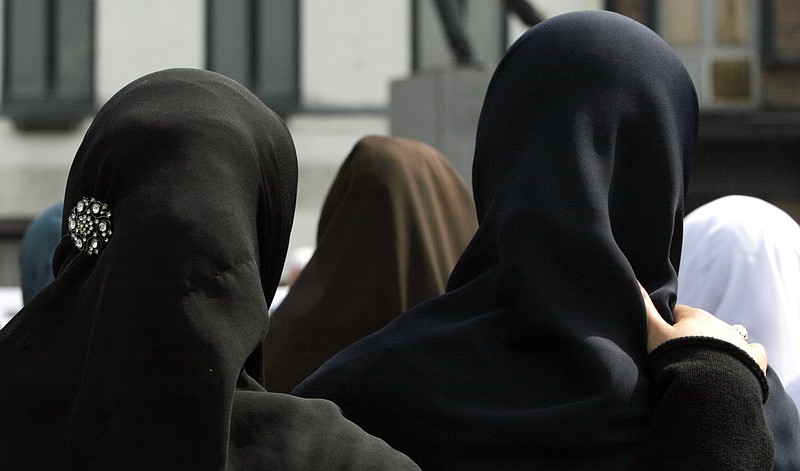PARIS-Private businesses in Europe can forbid Muslim women in their employ from wearing headscarves if the ban is part of a policy of neutrality within the company and not a sign of prejudice against a particular religion, the European Union Court of Justice said Tuesday.
Such a ban doesn't constitute what the court calls "direct discrimination."
The conclusion by the highest court in the 28-nation European Union was in response to two cases brought by a Belgian and a French woman, both fired for refusing to remove their headscarves.
It clarifies a long-standing question about whether bans by some countries on religious symbols, in classrooms, for example, can be extended to the workplace.
The court's response fed right into the French presidential campaign, bolstering the platforms of far-right leader Marine Le Pen, a leading contender in the spring election who wants to do away with all "ostentatious" religious symbols in the name of secularism, and conservative Francois Fillon, who hailed the court's decisions. France already bans headscarves and other religious symbols in classrooms as well as face-covering veils in streets.
However, critics quickly voiced fears that the decision risks becoming a setback to all working Muslim women.
"Today's disappointing rulings give greater leeway to employers to discriminate against women-and men-on the grounds of religious belief," said a statement by Amnesty International. "At a time when identity and appearance has become a political battleground, people need more protection against prejudice, not less."
Georgina Siklossy of the European Network Against Racism in Brussels expressed concern it could have dastardly effects on Muslim women-like making them choose between working and wearing religious garments-and other minority populations in Europe, like Sikhs with turbans or Jews with kippahs.
The Open Society Justice Initiative, which submitted a brief supporting the women, expressed disappointment.
The group's policy officer, Maryam Hmadoum, contended that the decision "weakens the guarantee of equality that is at the heart of the EU's antidiscrimination directive," which the Court of Justice cited in weighing the cases.
"Certainly, many employees who are asking themselves questions about religious signs in their companies will look at these decisions and probably put in place internal regulations," said lawyer Claire Waquet, who represents the French woman in question. "Some will certainly do this."
The EU Court of Justice made separate decisions on the cases, which were referred to them by the courts of Cassation in Belgium and France, but linked the cases.
The home courts must still rule on each case.

